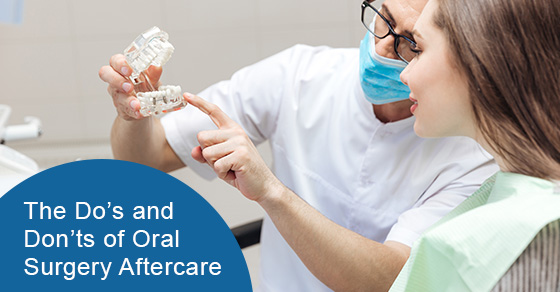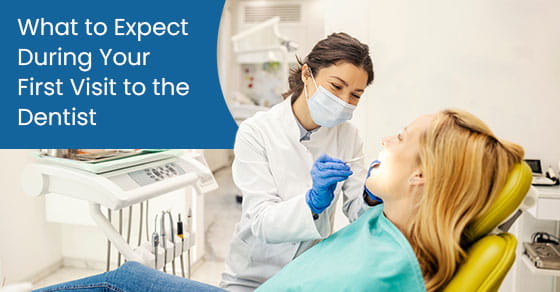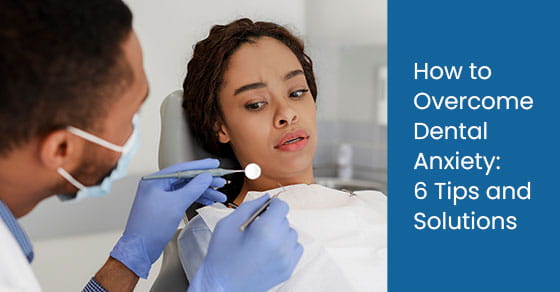After undergoing any type of oral surgery, you may be wary of side effects such as pain, tiredness, and swelling. It’s important to go into oral surgery ready and prepared for aftercare and managing any potential side effects. After all, your end result will rely heavily on the care you take after the surgery is completed. It would be a waste of time and effort if you didn’t keep up with proper aftercare.
Your wounds could become infected, and your progress could be tampered with if you don’t maintain cleanliness and follow your dentist’s instructions after surgery. If you are unsure of what you should be doing after your oral surgery, you should first consult with your dentist who can guide you in the right direction. In the meantime, here are some of the most popular tips to help take care of yourself and your mouth after oral surgery.
Rest as You Need
It’s imperative that you get enough sleep and rest during the days leading up to your surgery. You should also continue resting on the day of your surgery and for a few days afterwards. Book off any time from work or your scheduled activities if you need to. Adequate rest will ensure that your body will recover in due time. If you are lying down, prop your head up with pillows to ensure proper blood circulation to your head and to your mouth. This will help to reduce bleeding and swelling.
Take Prescribed Medication
If your doctor or dentist prescribes any medication for pain or to help promote healing after surgery, always remember to take the correct dosage at the right time(s). Even if you feel like you don’t need the medication, it’s still important that you take it or discuss this issue with your dentist. After all, preventing and managing pain is easier than treating it once it becomes unbearable. Keep an alarm or reminder on your phone for when it is time to take your medications.
Eat Soft Foods and Apply Ice
Applying ice to the outside of your mouth, lips, and cheek areas can help prevent swelling and minimize inflammation. As well, remember to keep a manageable diet of soft foods that will be easy to chew and swallow and that won’t interrupt your healing process. This includes mashed potatoes, soups, smoothies, and liquid-type foods. Avoid hard, crunchy, and sticky foods, and also foods that are extremely hot and can irritate the healing area. It’s important to keep a nutritional diet of fruits, vegetables, and vitamins to promote healing from the inside out.
Maintain Cleanliness
When caring for your mouth after oral surgery, it’s essential to maintain oral hygiene and cleanliness in these areas. Rinse out your mouth after eating so that food won’t linger within. Use a rinse with salt water to remove particles from your mouth and help in the healing process.
Don’t Smoke or Drink Alcohol
Smoking and drinking are some of the worst things you can do for your body while it is in a healing phase. That’s why most doctors and dentists recommend steering clear of these habits for at least 24-48 hours after surgery. Alcohol is not only very drying for your mouth, but it can tamper with certain medicines such as pain medications and antibiotics. The less you smoke and drink throughout the healing process, the better off your body and your mouth will be for it.
Follow Up With Your Dentist
Always book a follow-up with your dentist at least 1-2 weeks after your surgery. This will help them to identify if any obstacles to your healing have occurred, and to deal with any complications should they arise. A follow-up appointment will also give you the opportunity to address any concerns or questions you may have and to discuss your progress with your dentist.
As well, don’t be afraid to keep in touch with your dentist throughout the healing process. If a problem comes up or you are feeling pain and unusual symptoms, it’s better to alert your dentist sooner rather than later. A good dentist will want to be in the loop and keep an eye out for any changes after surgery.
Ultimately, oral surgery can go a lot smoother when you have plans in place for aftercare and give your body the rest and recuperation it needs to fully heal. Take some time off of work if necessary, and don’t feel guilty if sleeping and eating are the only things on your agenda.
For more information on dental surgery and dental procedures in Mississauga and the GTA, please call Bristol Dental Clinic at 905-712-3409 or contact us here. Our representatives will be ready and willing to assist you with any questions or concerns you may have regarding your oral hygiene and dental health. Please contact us today for more information on how we can help you and your family.





